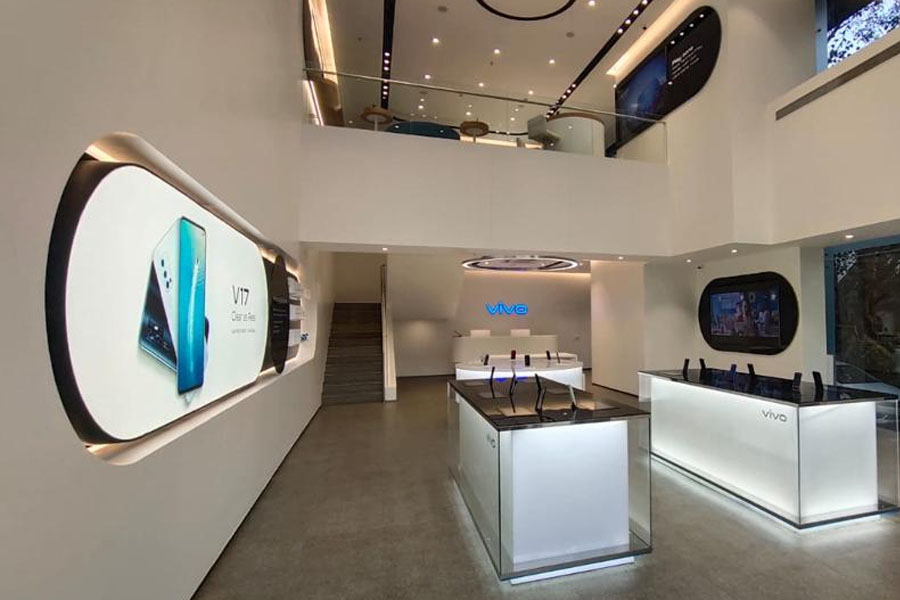Vivo has set up a new experiential flagship store in Thane, a city located outside Mumbai and the Chinese technology company plans to come up with twenty more such stores.

The company described the experiential store as an outlet that offers dedicated VR (virtual reality), gaming and customer interaction zones, serving as a place with an immersive environment wherein smartphone lovers can check out Vivo-branded devices while experiencing top-end technology. On Saturday, Vivo announced its plan to introduce more than 250 exclusive stores this year in a bid to expand its already extensive retail network in India.
Keeping in line with that, the company has set up a new experiential flagship store in Thane, and will be launching 20 more similar stores across state capital and metros, providing an unparalleled customer experience in an offline retail store, Vivo noted in a statement. Vivo India Director (Brand Strategy) Nipun Marya stated, “Keeping customer centricity at the core, we at Vivo strive to offer our customers unique retail experiences.
Editor’s Choice: Vivo Y91C 2020 launched; Specifications, featured and price
An important aspect of the company’s go-to-market strategy, the offline channel will continue receiving attention from the company. As part of the expansion plan, Marya said, the company will launch over 250 exclusive stores this year, taking the total up to 600.

Speaking about the experiential store, Vivo said consumers will be able to get their hands on gaming, VR devices, and check out the customer interaction zones that house Vivo products. Aside from that, smartphone enthusiasts will be able to experience Vivo’s top-notch technology in this engaging environment.
According to a report from research firm IDC, the Chinese smartphone maker has acquired the second spot (Xiaomi captured the first spot) in terms of total smartphone shipments with an impressive 18.8 percent share, which translated to 6.9 million units, in December quarter last year. Vivo grabbed the third spot behind Xiaomi and Samsung in a full-year tally.
UP NEXT: Chinese Smartphone Shipments to drop significantly in Q1 2020 due to the epidemic: Digitimes
(Source)







